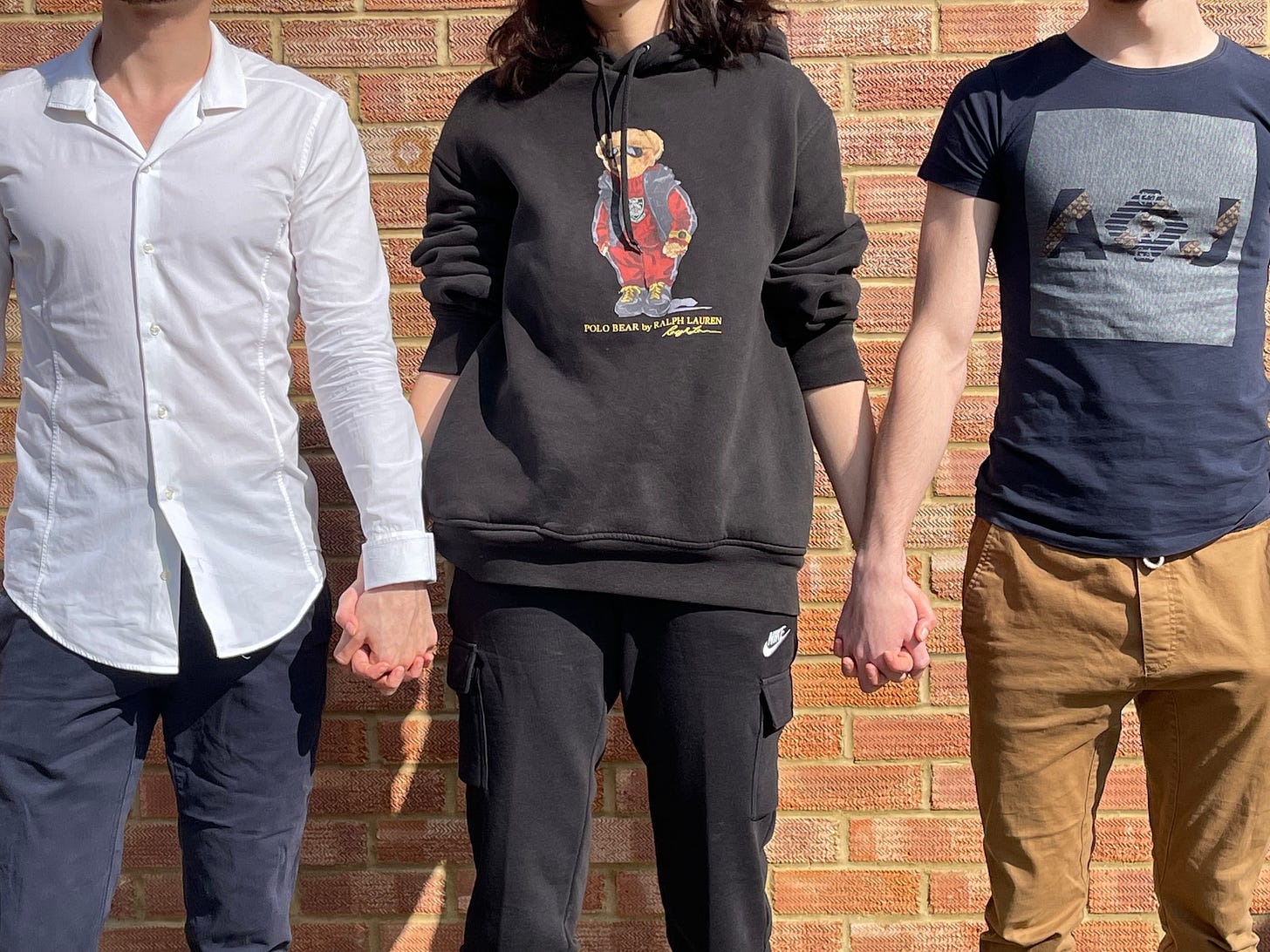Uncovering Polyamory: Departures From Conventional Love
One in five Brits surveyed are interested in non-monogamous dating. What's behind this trend?
iStock: Vershinin
Not long ago, I was hanging out with my friends and one of them told me that his girlfriend was polyamorous and that soon he was planning to meet her other boyfriend. And even though I consider myself a rather open-minded person, it still surprised me because, at that point, polyamory was something I’d heard of but never actually encountered in my life. That’s when I realised that I need to know more about this.
I started my journey in exploring polyamory by reading as much as I could find about it. I also found a polyamorous society in Oxford and went to one of their meetings. I remember leaving the meeting feeling amazed by how people can be so self-aware of themselves. I was also very impressed by how people can differentiate between what was embedded in their minds by the cultural norms and what they really wanted and needed.
If you are like me, you have no idea what you want. In this case, there is this reassuring thing that someone said to me: ‘Not having a clue is actually a really high state of awareness because most people won’t even go there and admit that they don’t know.’ We just need more knowledge and experience to figure out what we want and need. And I want to share some of that knowledge with you.
So, what is polyamory?
Allie, who currently has two partners, explains: ‘I think the literal term is having many loves. I see it as a way to experience true freedom. But also with polyamory, I don't feel restricted or stuck in relationships.’
‘Monogamy used to be one person for life, now it is one person at a time..However, monogamy only exists in reality - it doesn’t exist in your memory or your fantasy,’ - explains psychotherapist Esther Perel.
More and more, people show interest in something beyond the scope of monogamy. YouGov statistics show that 18% of the Brits asked are open to the idea of an agreed-upon, sexually non-exclusive relationship. This kind of relationship can be many things - open relationships, casual dating or polyamory. Psychologists and sociologists say that Google searches for “open relationships” or “polyamory” have risen in the last decade.
Photo: Valerija Iljina
Misconceptions
Polyamory is different from open relationships, as the former is about having a loving and intimate relationship with several people and the latter is usually just about sexual connections outside the relationship. There is a common misconception that polyamorous relationships are all about sex, whereas it’s far from the truth.
Allie is friends with her partner’s girlfriend (it’s called “metamour” in a polyamorous relationship), and sometimes they spend time all together. ‘It gets really annoying when people ask me if I'm trying to date his girlfriend or sleep with her. No, she's literally just a friend to me. But I understand where the curiosity comes from as well.’
Another misconception is that some people use non-monogamy to avoid serious romantic commitment. ‘The fact is that to be truly polyamorous you very much have to commit to the relationships you are having emotionally and energetically,’ - explains Sasha, who has been polyamorous for many years.
Jealousy
There are some hard aspects to polyamorous relationships too, of course. And jealousy can be one of them. Not all polyamorous people are magically devoid of jealousy, they just have a different approach to it. We live in a culture where we’re supposed to avoid jealousy at all costs. It’s a shameful feeling that we just bury deep inside and carry with us everywhere.
Sex and relationship educator Reid Mihalko says: ‘I like to think of jealousy as asthma. You learn to know your triggers and then how to avoid them.’ Allie says: ‘Every time I feel jealous I just say that I feel this way. And I realised that it’s fine for me to express it. Most of the time it’s just an instinctive reaction. You don’t have to do anything about it. You acknowledge it and move on.”’
Vanya, Allie’s other boyfriend, is monogamous and he has his own way of dealing with jealousy. ‘I usually ask myself “why am I feeling this way?” and try to look at the situation from Allie’s perspective to feel happy for her instead of feeling jealous. It also helps to talk to her about these feelings and receive her comfort. In these moments I feel reassured about the strength of our love and it gets easier.’
Sasha has another perspective on this: ‘Personally, I don’t remember the last time I’ve experienced jealousy. Compersion seems to come naturally.’
How to make it work and why we need to know about it
Polyamorous relationships require an extremely high level of communication and transparency. Transparency doesn’t mean an absence of privacy - it just means the absence of lies and the desire to minimise miscommunications. Polyamorous relationships also require arranging agreements and setting boundaries.
‘Our boundaries are all to do with mutually respecting my partner’s and my own boundaries and making each other feel respected, valued and loved,’ says Sasha.
iStock: FG Trade
Polyamorous relationships can be tricky - so can all relationships, as any connection with another person requires investing your energy, time and effort. But other people and the relationships we form with them teach us how to be more emotionally intelligent and empathetic.
We live in times when everything is changing rapidly and what once was considered to be the norm is not that unambiguous anymore. And it’s not a bad thing, right? Change makes us grow and discover things about ourselves we maybe didn’t know existed. There’s a certain stigma around polyamory, so learning more about it is essential if we want to live in a society that is based on acceptance and respect for each other. And even though polyamory is not for everyone, having more knowledge about it can help people in any type of relationship. Knowing more about it can also ease our journey in trying to be more self-aware and in tune with ourselves.





